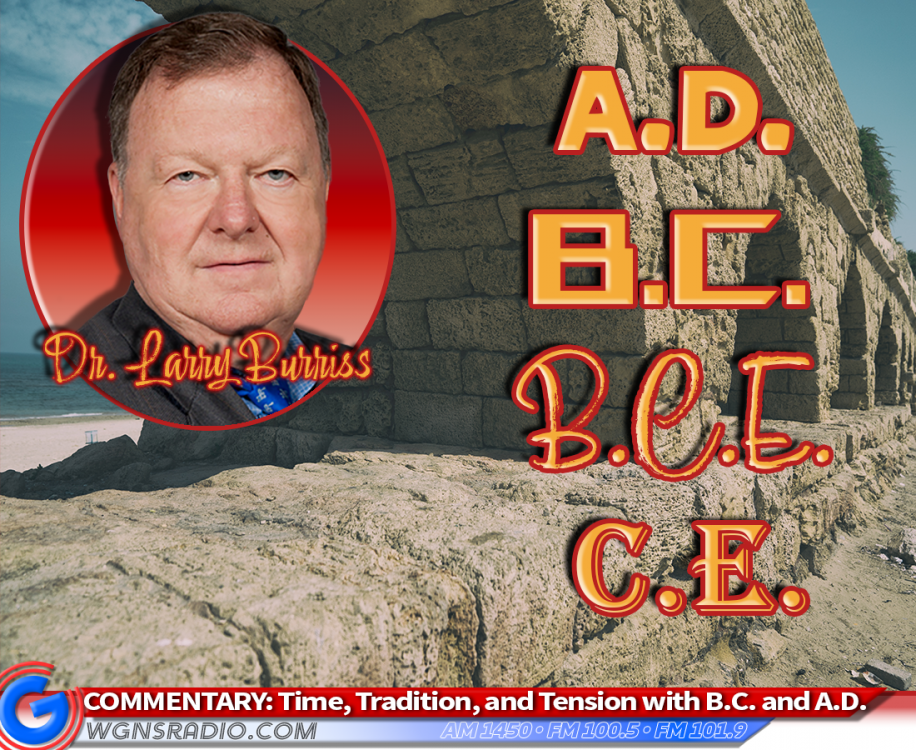Commentary: Some of the words and abbreviations we use to describe people, places, and things have evolved over time. But did you know that even the way we refer to dates and historical eras has changed—and not everyone is happy about it? Traditionally, "B.C." stood for "Before Christ," while "A.D." referred to the years following Christ’s birth. "A.D." is short for the Latin phrase Anno Domini, which means “in the year of the Lord.”
Today, many people have adopted new terms: "B.C.E.," meaning "Before the Common Era," and "C.E.," short for "Common Era." The intent, we're told, is to use more neutral language, especially in academic and interfaith settings. But the change hasn't come without controversy.With today’s media commentary, here’s MTSU Professor of Journalism, Dr. Larry Burriss…
Some Christians have expressed frustration, asking why they couldn’t just redefine B.C.E. as "Before the Christian Era" and C.E. as "Christian Era." After all, if language is open to interpretation and adaptation, why not take control of the meaning themselves?
And that’s the bigger question here—who decides what our words and abbreviations really mean?
- To hear more commentary by Dr. Larry Burriss, Click Here.
About Dr. Burriss - Dr. Larry Burriss is a highly accomplished professor of journalism with extensive experience in both academia and professional media. He teaches introductory journalism courses, media law, and quantitative research methods at the graduate level.
His academic credentials are impressive, holding five degrees:
- B.A. in Broadcast Journalism – The Ohio State University
- M.A. in Journalism – The Ohio State University
- M.A. in Human Relations – University of Oklahoma
- Ph.D. in Journalism – Ohio University
- J.D. – Concord Law School
Dr. Burriss has a distinguished career in print and broadcast news, public relations, and academic research. He has published extensively in both scholarly and popular publications, covering topics such as presidential press conferences, NASA photography, radio news, adolescent social media use, legal research, and even studies on Middle Earth.
In addition to his teaching and research, Dr. Burriss has held numerous leadership roles, including director of the School of Journalism, dean of the College of Mass Communication, and president of the MTSU Faculty Senate. His contributions to the state include being appointed by Governor Phil Bredesen to serve on the Tennessee Board of Regents.
A decorated professional, Dr. Burriss has won first place in the Tennessee Associated Press Radio Contest nine times. He also has a distinguished military background, serving as a lieutenant colonel in the U.S. Air Force. His active-duty service included deployments to Mali, Somalia, Bosnia, Central America, Europe, and the Pentagon.
Dr. Burriss continues to inspire students and colleagues with his vast knowledge, experience, and dedication to the field of journalism and media studies.





